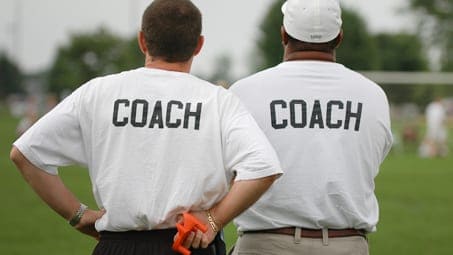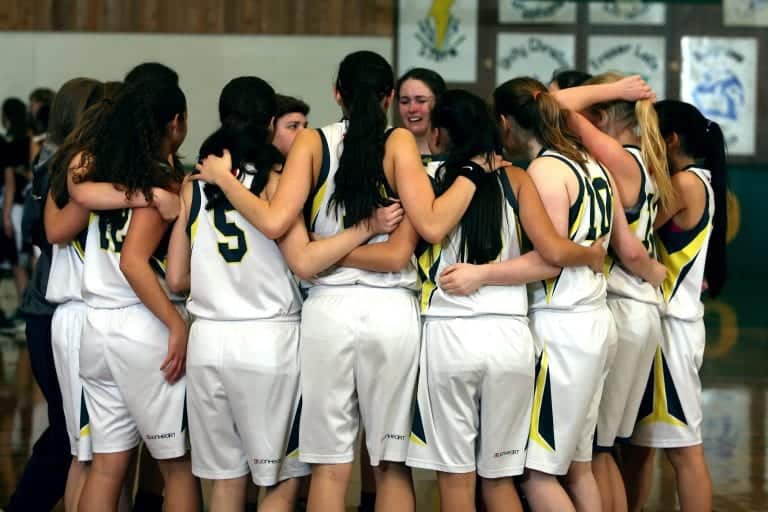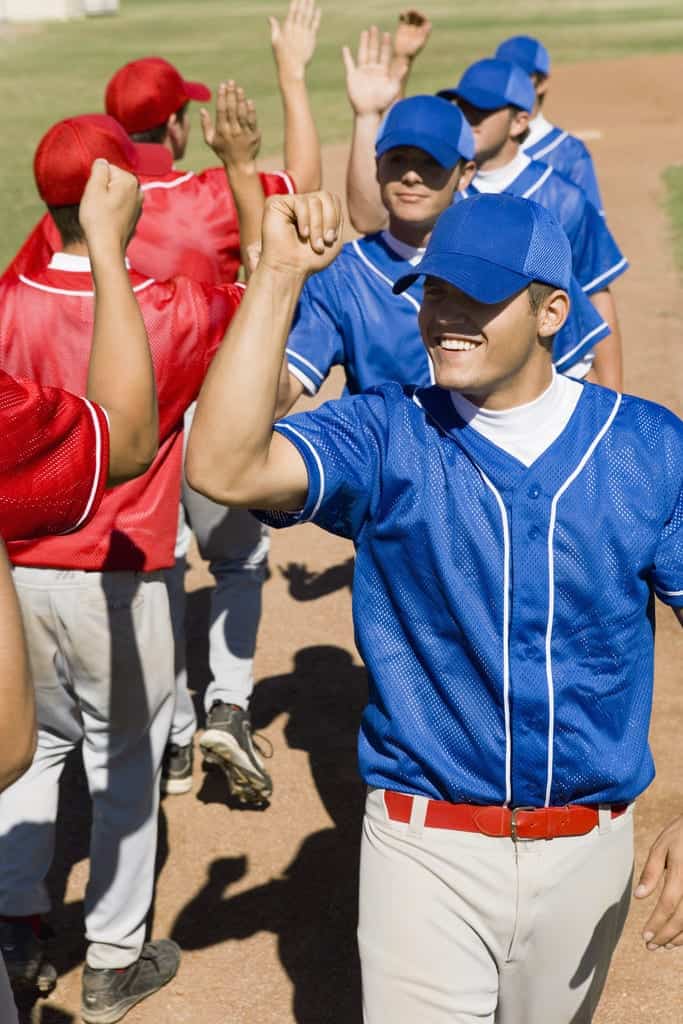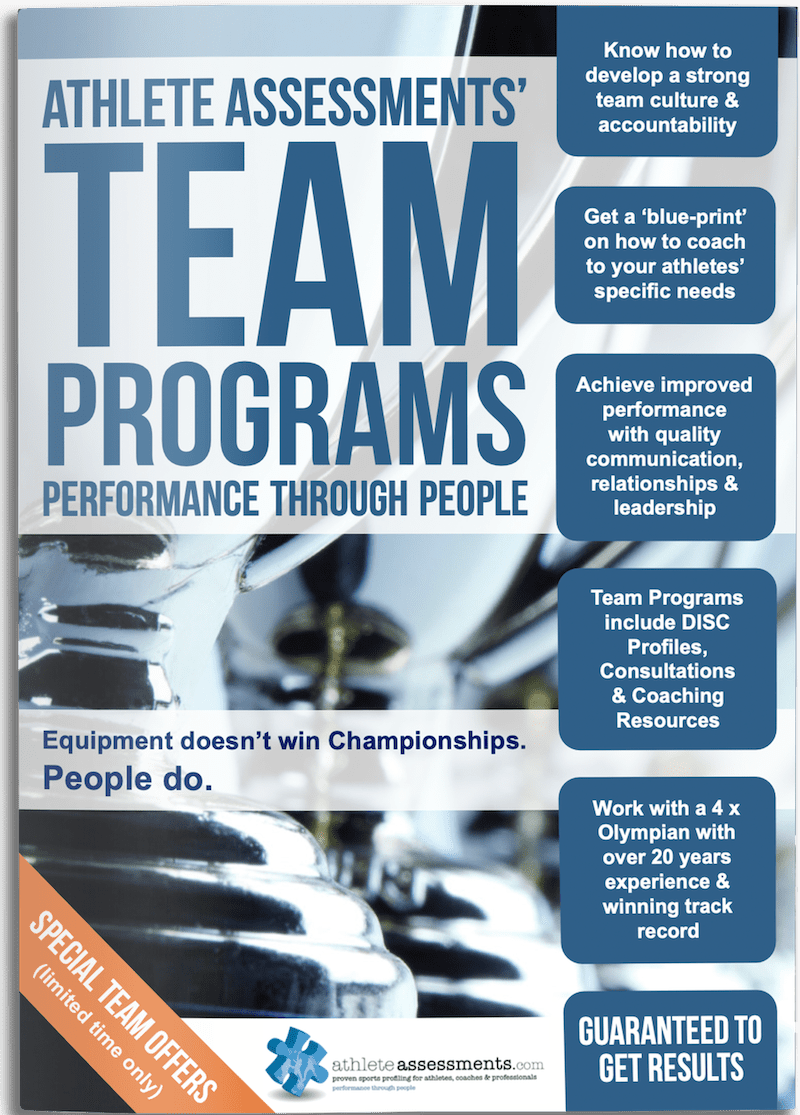Engage Athletes through Sport Coach Communication
As our recent article on What Bonds an Athlete received a lot of excellent feedback we thought it would be useful to provide a follow up. So here is how you can better the interactions you have as a coach in order to create more engaged athletes. Below is a list of typical scenarios facing most coaches (at all levels) at some stage during most training or practice sessions.
For Good Plays
When the team or athlete accomplishes something you want them to.
Do: Reward through immediate encouragement and showcase how you appreciate their concentration, effort, execution etc. Notice what they did well and showcase your noticing this and linking it to why it worked and how this helps them on game day. Every positive thing you do and say sticks in an athlete’s memory and builds on their self-esteem.
Don’t: Do not ‘expect’ excellence and therefore not notice, or reward it when it happens. Never take their skills or abilities for granted.
WHEN MISTAKES OCCUR
When something occurs that is unwanted on the field of play.
Do: Encourage immediately their effort and give corrective instruction on what to do right next time. Give them a process for improving their performance rather than the process for how to get it wrong again. When an athlete makes a mistake, that is the last thing they want to do, so do not punish them for it. The concept is to positively motivate a player to perform the correct technique rather than negatively motivate them to avoid the poor technique.
Don’t: Do not explicitly punish the athlete for a mistake or communicate to them in such a way as to damage the athlete’s self-esteem to the point where their belief in themselves is impacted. This leads to a lack of confidence in their ability and only serves to increase the likelihood of mistakes occurring more in the future. The athlete also will develop a fear of failure mindset.
FOR MISBEHAVIOR OR LACK OF FOCUS
When a player is obviously not focused on the right things to perform at a high level.
Do: Maintain order by always setting clear expectations for how the team is to behave at practice. Outline the positive benefits for the team and individual when they do focus their attention and give them the opportunity to “get their head” in the right space and then allow them to try again without fear of failure and punishment.
Don’t: Never nag or threaten athletes to behave or else… If there is still a lack of appropriate behavior, remove the offending athlete from the team for a period of time and have them identify what they need to do differently in order to respect the game and the rest of the team.
TO CREATE A POSITIVE CULTURE
Creating a culture where the norm is a high standard of play each training or practice session.
Do: Create a Learning Environment where the focus is Learning and Developing skills and abilities. Help the players to understand the game and its intricacies. Ask them questions to enable them to understand the key principles for successful play in different situations. Give them opportunities to practice at slower pace and with deliberate thought. Allow them to experiment and therefore experience what happens when different actions are taken. Let them learn from their mistakes without your constant telling and feedback.
Don’t: Give instruction or any communication in a sarcastic way. Do not yell at or threaten any athletes. Do not give them all the answers – allow them time to work it out themselves.
A study was completed on coaches who were trained to coach their athletes using the ‘Do Behaviors’ outlined in this article as opposed to coaches who had no formal training to be a coach. The results of the findings were interesting and link to our recent articles on Athlete Engagement and What Bonds an Athlete to You. The study found that when athletes were coached using the effective Do Behaviors this was reflected in their self-esteem and attitude toward the coach and team members. Essentially the study found those athletes had better relationships with their coach and team members and were more likely to want to play for their coach in the future. They enjoyed their sport more and wanted to be part of the team in the future. Also, these athletes evaluated their coach as being a teacher of the sport.
This is opposed to the responses from athletes who were coached by untrained coaches, who used many more of the Don’t behaviors outlined in the article. These athletes enjoyed the game they played the same as the athletes coached by the trained coaches. However, experienced lower levels of personal self-esteem and were less likely to want to participate in future competitions with their current coach. In our experience, these athletes are either lost to your sport or to sport completely.
Where to from here?
There is no doubt of the importance of the athlete coach relationship and engaged athletes. By making your coaching more about the Do’s than the Don’ts you can improve your coach-athlete relationship. A better relationship allows athletes to be more engaged with their club, team, and coach, and therefore perform better. At the end of the day, doing everything possible to help your athletes achieve the best result is what great coaching is all about.
At Athlete Assessments, we’re here to provide you with excellence in service and here to help you be your best. If there is anything we can assist you with, please Contact Us.
Recommended Articles
There is interesting research, based on a Gallup survey of reasons for people leaving their jobs, which shows nearly 75% of people decided to quit because of their boss or the managerial working environment, and only 35.4% of Americans felt engaged in their workplace. If you think about it, this creates a massive and unnecessary cost to businesses, especially when you consider the cause and the fact that these numbers are fixable.
Athlete Engagement is a critical concept for all sports coaches to understand. 'Engagement' is a borrowed term from the business world. There, it is a measurement of the degree to which an employee’s heart and mind is committed to their role, leader and company. It is so important in business because engagement has a direct and significant link to profitability. Research shows engaged individuals deliver an additional 30% in discretionary effort compared to disengaged individuals.
By Bo Hanson - 4x Olympian, Coaching Consultant & Director of Athlete AssessmentsSports programs today are predominately made up of Generation Y ("Gen Y") athletes. We are almost at the end of the Generation X ("Gen…
As a coach ensuring your athlete is always striving to gain a 1% improvement in their performance can be one of the hardest parts of your job. At Athlete Assessments, we often speak about the importance of a quality coach-athlete relationship, and how this can be used to improve athlete performance. This article discusses how to improve emotional bonds and engagement, and how understanding these factors improves your athlete’s performance.










